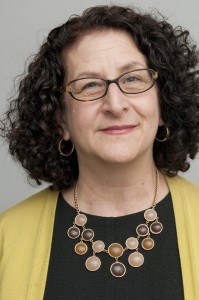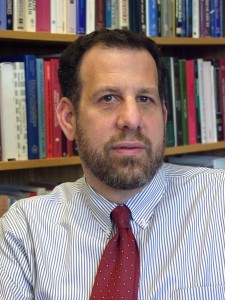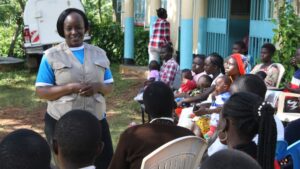By Fern Chertok and Leonard Saxe


At a summit held recently at the National Museum of American Jewish History in Philadelphia, several hundred communal professionals, rabbis, scholars, philanthropists and young intermarried couples gathered to discuss engagement of interfaith families in Jewish life.
There is widespread communal agreement that intermarriage has reshaped the landscape of American Jewish life, but a lack of consensus regarding how best to respond to this development.
For some, the debate over whether a rabbi or cantor should conduct an interfaith wedding hinges on theological questions. But for many, the debate is also about the impact that officiation might have on the Jewish character of the homes and families. We now have strong evidence of the association between officiation at intermarriages and the couples’ subsequent involvement in Jewish life.
Our new report, “Under the Chuppah: Rabbinic Officiation and Intermarriage,” explores the trajectories of Jewish engagement of a large group of young adult Jews married to Jewish and non-Jewish spouses. We surveyed 1,200 married young adults and explored differences among three groups of couples: in-married couples, intermarried couples who had a sole Jewish clergy officiant (i.e., no non-Jewish co-officiant) and intermarried couples who married under other auspices such as a justice of the peace, friend or family member.
The data are unequivocal that intermarried couples whose weddings were officiated by Jewish clergy as the only officiant are more highly engaged in Jewish life than other intermarried couples.
Among the intermarried couples married by a rabbi or cantor, the overwhelming majority (85 percent) of those who now have children reported that the religion in which their children are being raised is Judaism.
This is in stark contrast to the intermarried couples who did not have a sole Jewish officiant, of whom 23 percent are raising their children Jewish. Consistent with these findings, one-third of intermarried couples who had a rabbi or cantor as sole officiant are synagogue members. This number is more than four times higher than the rate for intermarried couples married by another type of officiant.
On the two measures that have been at the heart of the controversy about Jewish officiation at intermarriages — synagogue membership and raising children Jewish — intermarried couples with sole Jewish clergy officiation are not very different from in-married couples (Jews who marry Jews). The rates of synagogue membership are 34 percent for the former vs. 41 percent for the latter, and for raising children Jewish 85 vs. 94 percent.
Sole Jewish officiation at intermarriages does not, however, fully level the playing field between intermarried couples with a sole Jewish officiant and in-married couples on all measures of Jewish engagement. For example, intermarried couples who had sole Jewish officiation are somewhat less likely to have a special meal on Shabbat.
Our study does not provide a full explanation of the reasons for the differences between intermarried couples with a sole Jewish officiant and other intermarried couples. In part, the decision to have a Jewish officiant likely reflects a continuation of the already existing Jewish trajectory of these couples. But it may also be that the involvement of Jewish clergy has an independent impact on the lives of intermarried couples. Interactions with Jewish clergy in preparation for the wedding may serve to welcome the non-Jewish partner into Judaism, establish the groundwork for a continuing relationship and affirm the couple’s prior decision to raise a Jewish family. Conversely, rejection by clergy may have a negative effect.
What does seem apparent from our research is that most couples who engaged rabbis for officiation purposes appear to have Jewish commitments that carry over past the wedding ceremony.
Our socio-psychological studies of intermarried young couples shed light not only on the lived experiences of contemporary Jews, but also provide critical data for thinking about the future.
We would like to think that our research, rather than viewing Jewish experience through a rearview mirror, is looking forward. We are discovering that the consequences of intermarriage that we have long expected to be devastating vis-a-vis the Jewish future may not be inevitable.
Leonard Saxe is director and Fern Chertok is a research scientist at the Cohen Center for Modern Jewish Studies of the Steinhardt Social Research Institute at Brandeis University.





